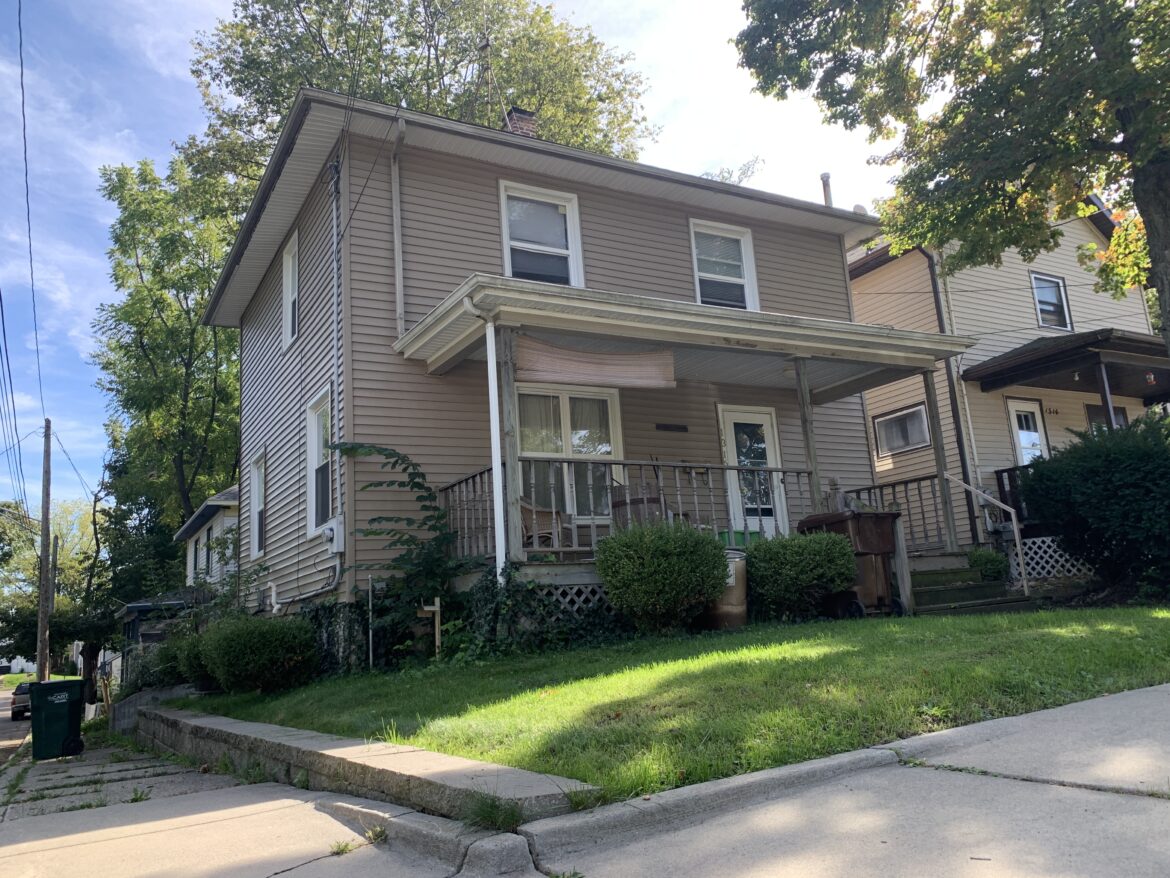Local shelter officials say the COVID-19 pandemic has led to shortages of volunteers, funding, donations, jobs and housing for shelters — making it that much harder for people who are homeless to get assistance.
Loaves and Fishes Ministries operates an emergency overnight shelter with three properties in the Lansing area. Guest advocacy manager Brent Anderson said the ministry does what it can to help the community.
“Homeless people are individuals just like us. They don’t choose to be in the places they are, nobody really does,” Anderson said. “I want people to understand the human side of it. Unfortunately, homeless people get a negative stereotype that they’re all alcoholics, drunks and drug addicts, and there are some for sure, but that’s definitely not the case with a lot of them.”
On a given night in 2020, there were 512 homeless people in Lansing, East Lansing and Ingham County, according to an estimate from the National Alliance to End Homelessness. This is a 22% increase from the reported amount of 419 in January 2019.
The COVID-19 pandemic, which began impacting the United States in January 2020, affected the homeless population more than many homeless advocates expected.
The CDC reported that “because many people experiencing homelessness are older adults or have underlying medical conditions, they may be at increased risk for severe illness from COVID-19.” The report continued to say that “health departments and healthcare facilities should be aware that people experiencing homelessness are disproportionately affected by COVID-19.”
So, after stay-at-home orders were issued, where were these people supposed to go?
COVID-19 protocols made it harder for shelters to help the homeless population, local shelter officials said. Since everyone had to have a negative COVID-19 test before they were let in, in fear of shelter outbreaks, less people than normal were served by them.
Anderson said there have been multiple coronavirus outbreaks in homeless shelters nationwide, and generally at least one per shelter in Greater Lansing. Not only did these outbreaks lead to spreading of the virus, but they also forced people onto the streets as shelters restricted capacity or shut down completely for quarantining.
Loaves and Fishes Ministries closed once for a quarantine period after someone came in with COVID and had a positive test. As a result, the Ingham County Health Department put everyone in the shelter who tested positive into hotel rooms and returned them to the shelter after they recovered.
The National Health Care for the Homeless Council estimates more than 375,000 homeless people have tested positive.
Although it once had almost 200 volunteers before the pandemic, the Loaves and Fishes Ministry has only six volunteers now. Other shelters have seen a similar trend.
“Like everywhere else, we are seeing an increase in need, but unfortunately we have severe decreases in staffing and volunteers,” said Laura Grimwood, communications director for the City Rescue Mission of Lansing, which operates two shelters and a drop-in center.
As for the shortages in housing, the majority of shelters are waiting for the eviction moratorium to be fully lifted. The Biden administration and CDC announced on Aug. 3 that a new order, temporarily halting evictions, was being issued. The order was expected to expire on Oct. 3, but is “subject to further extension, modification, or rescission based on public circumstances.”
A lot of people are waiting for subsidized housing with approved vouchers in their hands, and still can’t find a place to live, Anderson said. Part of the problem is there are people squatting in some apartments that shelters would normally be sending people to
Linda Karl, administrative assistant for Cardboard Prophets, a street-based and self-funded outreach program in Lansing, says the fight for the homeless is not over.
Karl works alongside her son, who founded the program, to set up events, take calls and work with other churches and shelters in the community.
“I want people to know that homeless people in general are like everybody else,” she said. “They have wants and dreams, and they need somebody to help. It is our job to give them a hand up and never judge them.”
Karl said it’s going to take more effort from the city and the state to make any real, lasting changes. There needs to be training, education and after care.
Some cities in California, Minnesota and Colorado are taking steps to provide supportive housing to the homeless. They’re purchasing and renovating abandoned hotels that will be converted to house the homeless instead of having them stay on the streets.
“We haven’t done that in Michigan or Lansing yet, but I’m hoping something like that happens. Things are starting to change slowly but surely, so I have hope,” Anderson said.
Cardboard Prophets is hosting a “Laundry Day” event in Logan Square on Oct. 30 from 10 a.m. to 2 p.m. There will be Halloween costumes for children, crafts, lunch, a free store, and free laundry service.
If you are in need of housing assistance, call 2-1-1 for additional resources.
